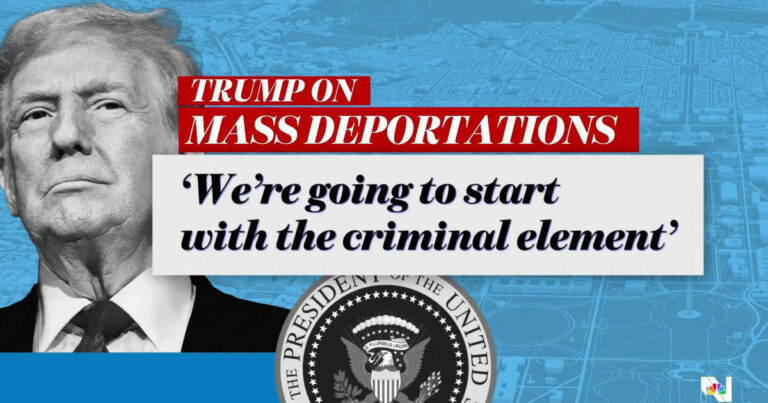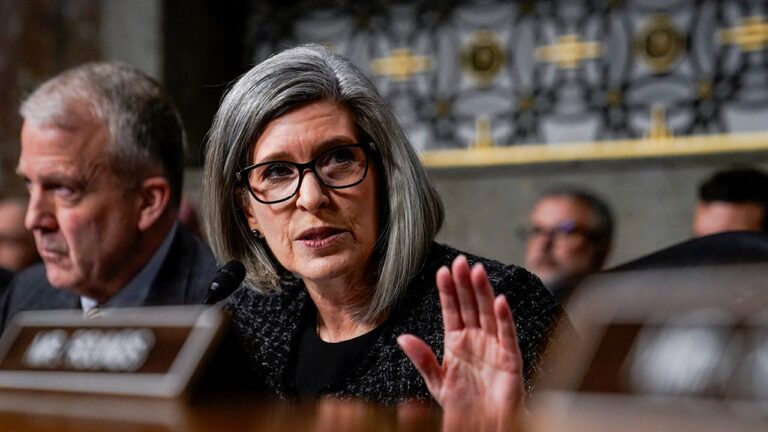Economists broadly dislike tariffs, saying they tend to increase prices for consumers — a likelihood that many company executives are already warning of. Small-business owners who weathered Trump’s first round of levies told NBC News last month that they’d struggled to adapt, with many describing limited options for absorbing cost hikes compared with larger rivals. The new slate of tariffs Trump calls for would be much steeper and more far-reaching if fully implemented.
“In his first term, President Trump instituted tariffs against China that created jobs, spurred investment and resulted in no inflation,” Trump transition spokeswoman Karoline Leavitt said in a statement. “President Trump will work quickly to fix and restore an economy that puts American workers [first] by re-shoring American jobs, lowering inflation, raising real wages, lowering taxes, cutting regulations, and unshackling American energy.”
Analysts generally disagree, though Wall Street seems skeptical that the next administration will execute all its trade promises.
“Trump’s policy proposals from his campaign, at face value, could result in higher inflation in the near term and lower growth in the medium to long term,” researchers at S&P Global Ratings said in a release Tuesday. But tariff impacts on energy markets alone could persuade the next president to back down, S&P analysts said, adding that some experts see his latest pitch as “classic Trump” — a negotiating tactic that shouldn’t be taken literally.
But many small-business owners aren’t taking their chances.
“I’m much more worried now, sadly,” brewer Chris Smith wrote in an email after the election. Smith, the owner of the Virginia Beer Company, in Williamsburg, Virginia, said last month that he has been paying an extra $1,000 for tap handles every year since Trump placed 25% levies on steel in 2018. Now he’s accelerating the purchase of a stainless steel fermentation vessel from China and potentially a grain silo.
Smith said he usually adds one tank each year to his brewery, costing up to $30,000. He’s also watching the price of aluminum cans, hoping to negotiate prices with brokers.
Angie Chua, founder of Bobo Design Studio, a small stationery company in Palm Springs, California, is already searching for ways to save in case her costs rise.

Chua manufactures her signature product, a travel journal, in China — whose exports Trump has threatened to hit with 60% tariffs. Chua said that until she spoke with NBC News last week, before Trump’s recent announcement, she didn’t realize he wanted such high levies on Chinese goods. “It would be the nail in the coffin for us,” she said. “Sixty percent is horrifying.”
Chua said that after a rough year for Bobo’s e-commerce sales, she doesn’t have the funds to place a large order up front and that shifting to domestic suppliers would be prohibitively costly. So for now, she’s considering adding a tariff surcharge as a line item on her products so consumers can see what the price used to be.
“We’ll cross the bridge when we get there,” Chua added, echoing some of the uncertainty among market analysts. “How do you predict someone who is known to be very unpredictable? How do you even forecast for that?”

Consumers may focus on imported goods when they assess how tariffs affect the prices they pay, and domestic industries will be affected, too, said Hadley Douglas, who co-owns the Urban Grape wine shop in Boston with her husband, TJ Douglas.
She works with distributors to deliver wine to her stores, as she has to by law. If European or South American wines become more expensive, smaller distributors’ profits will dwindle, Douglas said, which could drive them out of business. But the same distributors also deliver domestic wines across state lines, which means U.S. wineries could have trouble getting their bottles onto shelves.
It’ll start at the smaller, family-owned distribution level, and that’s the first domino that will go.
Hadley Douglas, co-owner of the Urban Grape, Boston
“It’ll be a slow burn,” Douglas predicted. “It’ll start at the smaller, family-owned distribution level, and that’s the first domino that will go. They operate on very small margins.”
Douglas anticipates raising prices to cover the cost of potential tariffs but worries about losing customers as a result. She and her husband sit on the U.S. Chamber of Commerce’s Small Business Council, a group of about 100 entrepreneurs in various fields who agree on hardly anything. Tariffs are the exception, she said: Everyone’s against them.
Not all businesses have the cash on hand to stockpile inventory or accelerate purchases, as some large brands already plan to do. Joe Hakim, the general manager of Ackroyd’s Scottish Bakery in Redford, Michigan, is holding off placing his Easter chocolate order, which he usually does in October to ensure it arrives on time. But with potential tariffs on the horizon, he’s worried the price will jump, and he decided not to take the risk.













